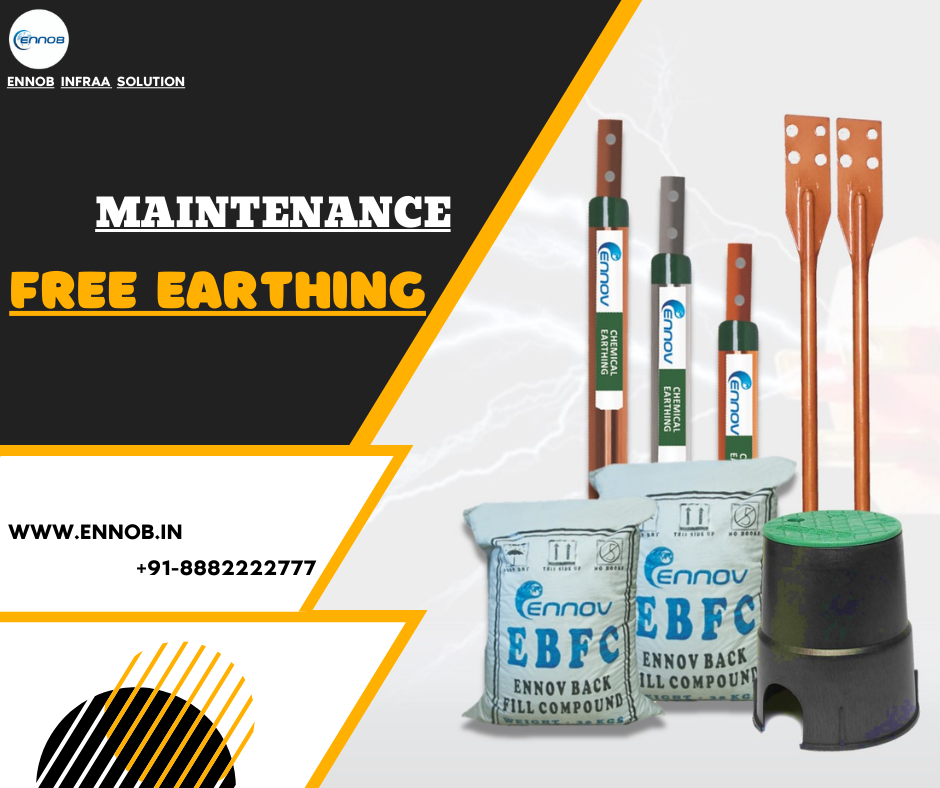In today’s technologically advanced world, ensuring the safety of electrical systems is more important than ever. One of the essential components for electrical safety is a proper earthing system. Traditional earthing systems, although effective, often require regular maintenance and checks to ensure they function optimally. However, modern infrastructure is increasingly adopting maintenance free earthing systems, thanks to their long-term benefits and hassle-free performance.
Here’s a look at some key benefits of maintenance-free earthing systems:
1. Long-Lasting Performance
Maintenance-free earthing systems are designed using high-quality, corrosion-resistant materials such as copper-bonded rods or chemical earthing electrodes. These materials ensure that the system remains functional for decades without frequent replacements or repairs. This longevity makes them highly reliable, especially in critical installations like data centers, hospitals, and telecom towers.
2. Low Maintenance Costs
As the name suggests, these systems require little to no periodic maintenance. Unlike conventional systems that may demand regular water pouring or salt treatments, maintenance-free earthing systems remain effective with minimal intervention. This significantly reduces the recurring maintenance costs over time.
3. Consistent Ground Resistance
One of the most notable advantages is the ability to maintain stable ground resistance values. Whether it’s dry or wet weather, these systems ensure reliable performance by providing a low-resistance path to the ground. This consistency is vital for protecting sensitive electronic equipment from electrical surges and lightning strikes.
4. Space-Saving Design
Maintenance-free earthing electrodes typically occupy less space due to their compact and efficient design. This makes them ideal for urban or industrial settings where space is limited.
5. Environmentally Friendly
These systems often include eco-friendly backfill compounds that improve soil conductivity without harming the environment. Unlike conventional methods that can degrade soil over time, maintenance-free options are safer and more sustainable.
6. Safety and Compliance
Modern earthing systems adhere to national and international safety standards (like IS/IEC). This ensures not only safety but also compliance with statutory requirements, making inspections and certifications easier.
Conclusion
Maintenance-free earthing systems are a smart investment for anyone looking to enhance electrical safety while minimizing upkeep. With their durability, reliability, and cost-effectiveness, they are becoming the preferred choice for both residential and commercial projects. Adopting such systems today means safer, smarter, and stress-free electrical infrastructure for tomorrow.
